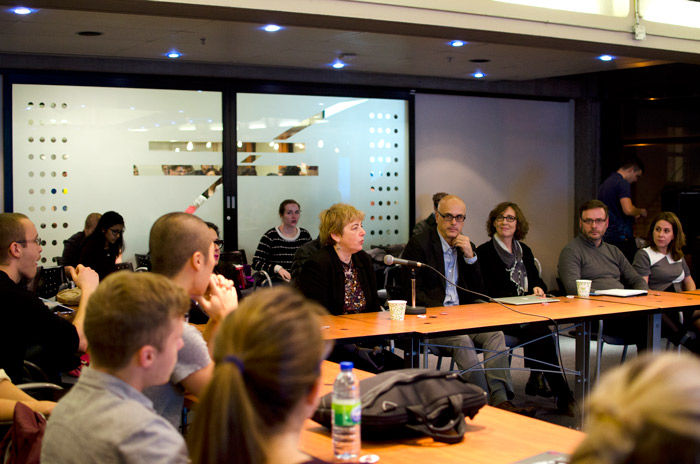On Nov. 19, the Students’ Society of McGill University (SSMU) voted in favour of establishing an ad-hoc electoral reform committee, institutionalizing support for indigenous communities, and creating a committee to initiate and propose changes to the student health and dental plan.
Electoral Reform Committee
In response to recent and prolonged SSMU election disarray, Arts Representative to SSMU, Adam Templer, spoke in favour of passing a motion to create an ad-hoc electoral reform committee.
“In the aftermath of the elections this Fall, last [Winter, and] elections before that […] SSMU elections have really gotten a bad reputation from the way [they] have been run,” Templer said. “[This motion is about] bringing forward a committee to investigate avenues for electoral reform, to make it less personal, more functional, [and] more sustainable.”
Vice-President (VP) Clubs and Services Kimber Bialik cited a need to reform online campaigning.
“What was left out [of the previous revision were] any guidelines […] on online campaigning, which has been a primary issue in past campaigns,” Bialik said.
Council looks to address online campaigning alongside strategies for faster responses to issues during the election period. Consultation from the student body on desired changes to the current electoral format will also be prioritized. Visiting former Council member Omar El-Sharawy described student consultation as a step in the right direction.
“I believe the biggest problem for the larger student body is just feeling that SSMU isn’t listening to them,” El-Sharawy said. “The fact that we’re trying to involve students, and trying to have students engaged, and trying to have student consultation is literally what students have been begging SSMU to do.”
The motion passed unanimously, with an amendment to include six councillors and six members-at-large, as opposed to the four of each proposed originally.
Institutionalization of support for indigenous communities
Council voted unanimously in favour of renewing the motion to adopt the Traditional Territory Acknowledgment for another year.
This motion calls for the practice of indigenous solidarity by SSMU and the student body as a whole by resolving to state the Traditional Territory Acknowledgment at all major SSMU-affiliated events. This motion also gives access to room bookings through the VP University Affairs to indigenous students and groups that organize events aiming to bring greater support and visibility for indigenous communities. Bialik brought up a concern with the room bookings clause, relating to existing space capacity issues on campus.
“We have a pretty serious space constraint issue, and it isn’t possible for us to support all our current clubs and services right now,” explained Bialik. “If we keep offering free room bookings to everyone, we’re less and less able [to accommodate].”
SSMU President Kareem Ibrahim reminded the Council that they had passed a similar motion on mental health space.
“Indigenous groups are 0.006 per cent of the population at McGill,” said Ibrahim. “The visibility of that community is so minute, that to add this to what they can access is not going to [disadvantage other groups], but speak volumes to what [SSMU] is doing to make sure that [the ingidenous] voice is heard throughout this campus and in our country.”
Improving mental health and legal services for students
Councillors voted in favour of creating a subcommittee to propose changes to the existing student health and dental plan, with a focus on improving mental health and legal services.
Templer referenced a March 2014 survey conducted by Alliance Pour La Santé Étudiante au Quebec (ASÉQ), a Quebec insurance company, in which McGill students requested better mental health coverage, as a reason for developing this committee.
“McGill Mental Health Services has a wait time of two weeks for initial appointment, followed by an additional two weeks to see a psychiatrist, and a three-to-four month wait for regular psychotherapy,” Templer said. “It’s completely strained [….] This committee will allow for investigating options to get students the help that they need.”
On the legal front, Templer explained that the McGill Legal Information Clinic only provides free, confidential advice and representation to students seeking legal advice in matters involving the university. Reforms would allow coverage for students in need of representation in cases such as a dispute with a landlord, or an underpaying employer.
“We need better support systems for [students] in those instances,” Templer said.









